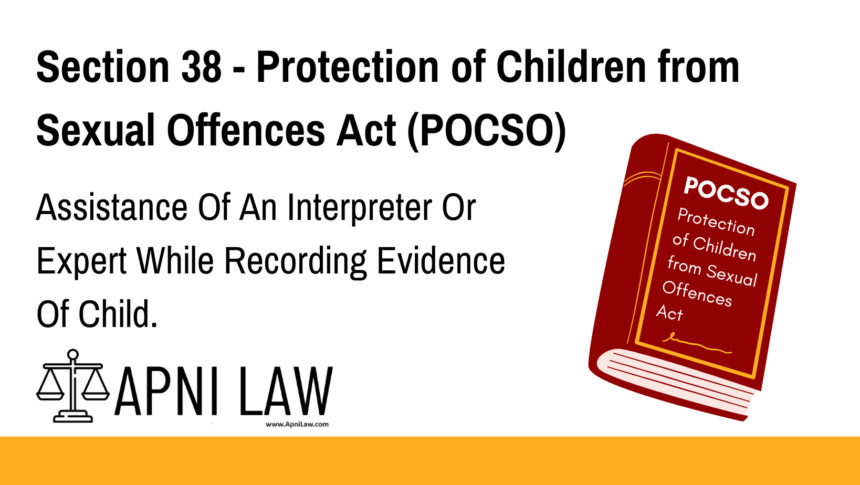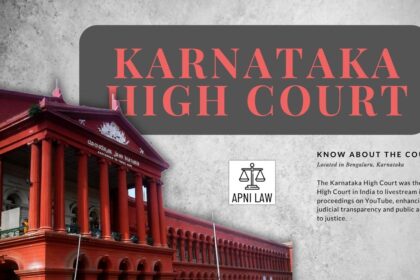Code: Section 38
(1) wherever necessary, the Court may take the assistance of a translator or interpreter having such qualifications, experience and on payment of such fees as may be prescribed, while recording the evidence of the child.
(2) If a child has a mental or physical disability, the Special Court may take the assistance of a special educator or any person familiar with the manner of communication of the child or an expert in that field, having such qualifications, experience and on payment of such fees as may be prescribed to record the evidence of the child.
Explanation of Section 38 POCSO
Section 38 of the Protection of Children from Sexual Offences (POCSO) Act ensures that children can testify clearly, even if they face communication barriers.
- Interpreter Assistance: If the child speaks a different language, an interpreter can help. This ensures that the child’s testimony is understood accurately.
- Assistance for Disabled Children: For children with physical or mental disabilities, the Court can involve a special educator or expert familiar with the child’s unique needs. This helps the child communicate more effectively during testimony.
The main goal is to make the process child-friendly, ensuring the child’s voice is heard without barriers, whether related to language or disability.
Key Provisions
- Interpreter Assistance: The Court can appoint an interpreter to ensure the child’s testimony is clear, especially if the child speaks a different language.
- Support for Disabled Children: For children with disabilities, the Court can bring in experts familiar with the child’s communication style, such as a special educator.
- Qualifications and Fees: The interpreter or expert must have appropriate qualifications. The Court also ensures that the costs are paid according to the prescribed rates.
Illustrations
Example 1: Language Barrier
A child who speaks a regional language is asked to testify. The Court appoints an interpreter to ensure the testimony is accurately recorded and understood.
Example 2: Child with Autism
A child with autism needs to testify in court. The Court appoints a special educator who knows how to communicate with the child effectively, making sure the child’s evidence is recorded correctly.
Common Questions & Answers on Section 38 POCSO
1. Why does the Court need an interpreter for the child?
If the child speaks a different language, an interpreter ensures the child’s testimony is clearly understood by the Court.
2. How does the Court support children with disabilities?
The Court may appoint a special educator or an expert who understands the child’s communication style to record their testimony.
3. Who decides on the qualifications of an interpreter or expert?
The Court determines the qualifications and fees of the interpreter or expert, ensuring they meet the necessary standards.
4. Does the Court cover the cost of the interpreter or expert?
Yes, the Court pays the fees for interpreters and experts based on the prescribed rates.
Conclusion
Section 38 of the POCSO Act ensures that all children, regardless of language or disability, can testify effectively in court. By providing interpreters or experts, the law creates a more accessible and supportive environment for children. This approach helps ensure that the child’s testimony is accurate and that the trial is fair.
For more details on POCSO and legal procedures, visit ApniLaw, where we simplify the law for everyone.








